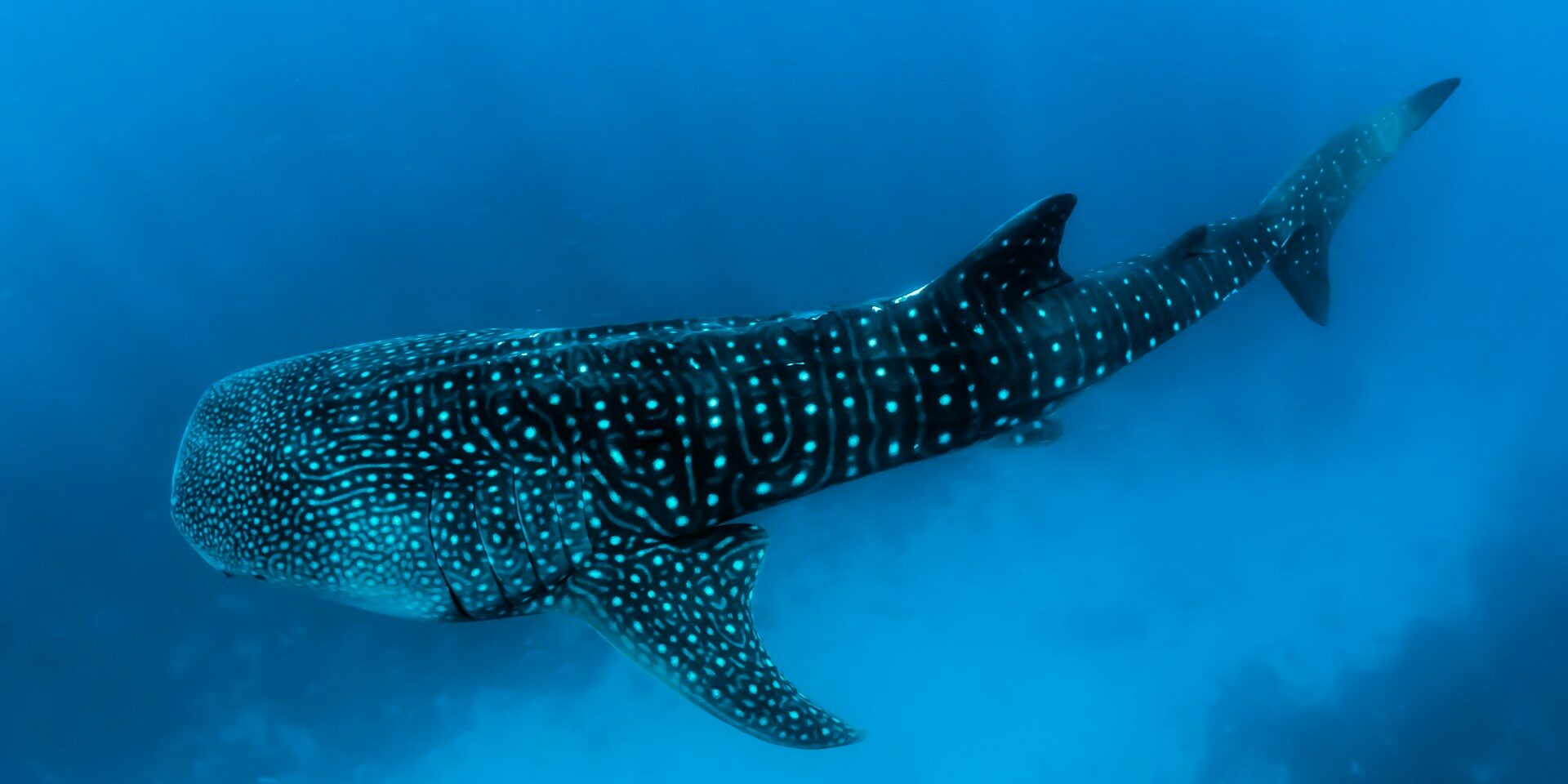With the release of Regulation No. 2024/R-96, which aims to improve interactions with whale sharks, a major contribution has been made towards Maldives whale shark conservation. With this rule, the Protected Species Regulation (2021/R-25) undergoes its seventh amendment, updating the 2009-established Code of Conduct for the Protection and Conservation of Whale Sharks.
With strict rules aimed at ensuring the safety of visitors as well as the whale sharks themselves, the new policy furthers the Maldives’ commitment to marine conservation. One of the primary features of the new rule is that people must keep a safe distance of at least three metres from the bodies and four metres from the tails of whale sharks. Touching whale sharks or swimming with them while holding on is strictly prohibited. It’s also important to engage with whale sharks in a quiet, tranquil manner and to stay to their flanks so as not to chase them or impede their natural course.
The rule also prohibits feeding whale sharks and limits the use of bright lights, selfie sticks, and flash photography while interacting with them. Drones must be flown within the operator’s line of sight and at least 30 metres above sea level, according to special regulations for aerial photography. In addition, it establishes a 250-metre contact zone that may only accommodate three vessels at a time, imposing a five knot hour speed restriction that drops to two knots within fifty metres of the whale shark. In order to prevent obstructions or disturbances to whale sharks during their normal activities, emergency measures are set up for boats.
The rule lays forth precise instructions to follow in the event of coming across an injured or entangled whale shark, including alerting the Environment Protection Agency and making sure the shark is released safely.
In addition to protecting the crucial ecology that sustains whale sharks in their native home, this new rule is expected to improve the experience of visitors engaging with whale sharks in the Maldives. The archipelago is setting the standard for Maldives whale shark conservation and marine conservation as a whole with this rule, guaranteeing that future generations will be able to enjoy the splendour of these majestic creatures.







